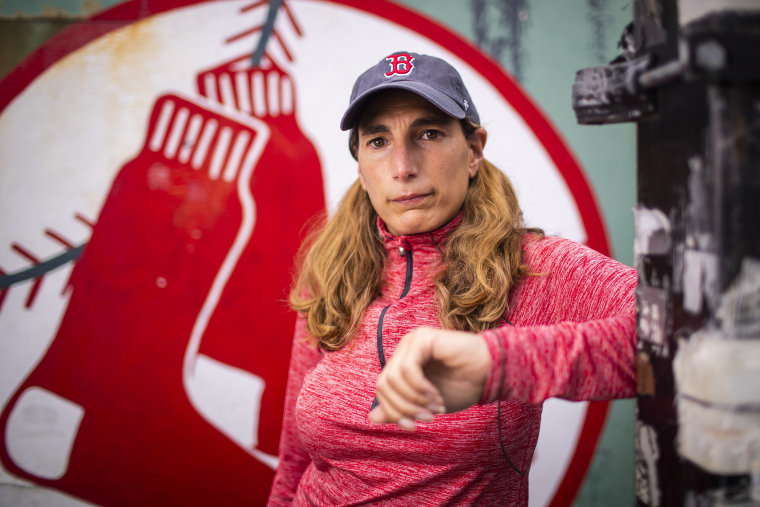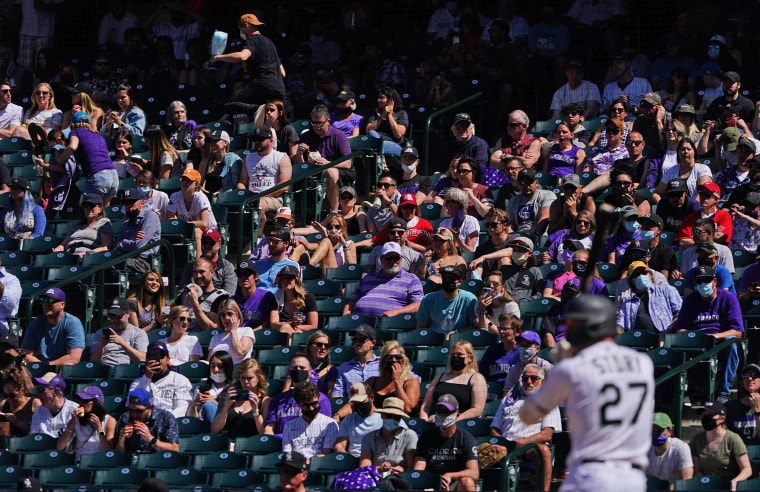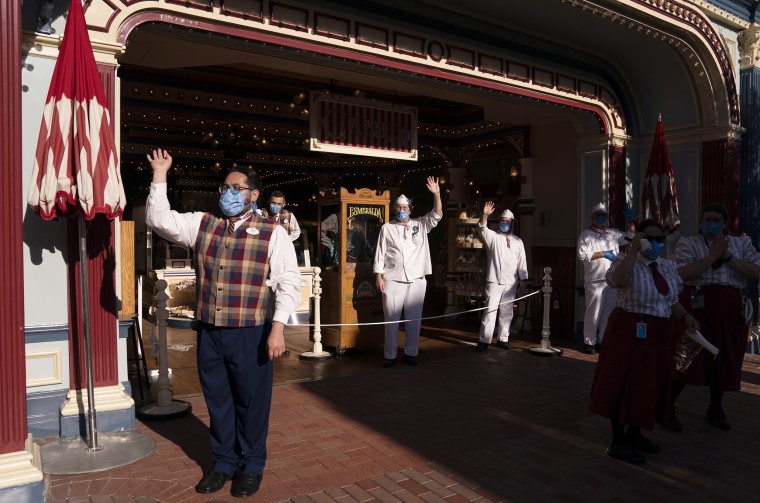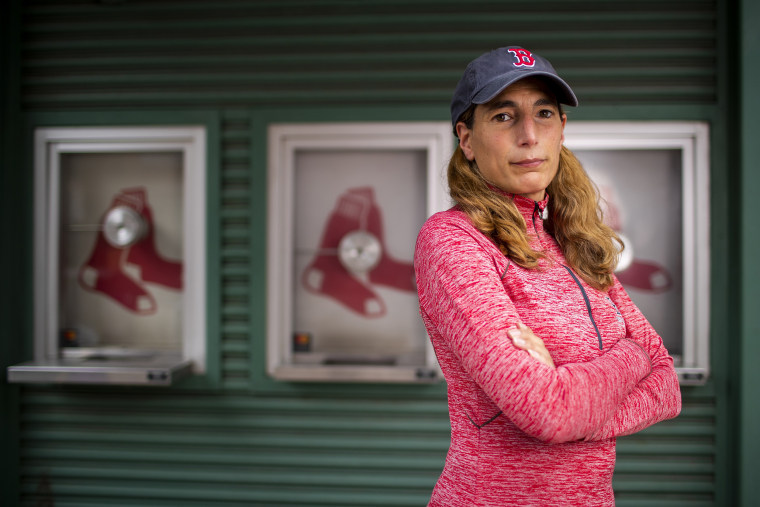After more than a year of being shut out, cashiers, food vendors, guest greeters and other workers are making their way back to America’s most beloved baseball stadiums, amusement parks and concert venues — but the great return is being met with changes and conflicting feelings of anxiety and excitement as tens of thousands of fans and visitors also make their way back.
“You don’t know what’s going to happen,” said beer vendor Heidi Hashem, 46, at the beginning of the 2021 season. While she was initially nervous about returning to work at Fenway Park in Boston for the first time in over a year, no Red Sox fans meant no work for her, other stadium concession subcontractors and many other park employees.
Hashem and her siblings all work at Fenway, but only she and her brother Kevin decided to return. Hashem said she did so out of a desire to “push forward.” She said her health and safety anxieties have now slightly lifted thanks to being placed in more open-air areas of the park and seeing that fellow employees are complying with safety protocols.
“Everybody is very, very serious about wearing a mask,” Hashem, a native Bostonian, said. “We're doing our due diligence to try to keep ourselves safe and keep others safe around us.”
Although other stressors remain, such as slow business and placement shifts away from her typical gig because of employment and fan capacity constraints, Hashem is happy to have a reliable paycheck again.

“I've always depended on this income. I've had this job since I was 15 years old,” she told NBC News. “It's not like I can go out and spend money on extravagant things. It's really money that I'm going to be using for bills and, you know, necessities.”
Last year, Hashem had to rely solely on her other job in the human services field and a $500 stipend from the Red Sox to get by.
"The club committed over $1.5 million to aid Red Sox part-time and seasonal employees whose jobs did not allow them to work remotely during the pandemic. This assistance also extended to our concession partners at Aramark," said Boston Red Sox spokesperson Zineb Curran. "We fully recognize that this funding did not mitigate the full impact of what these employees experienced, but our hope was to provide some measure of help and relief during a very challenging period."
This $1.5 million included the $1 million that each of the 30 Major League Baseball teams raised to support its ballpark employees at the beginning of the pandemic last year, Curran said.
A lack of financial and emotional support was one of the main reasons Eugenia Mays, a 63-year-old prep and grill cook at Coors Field in Denver, was hesitant to come back for another season with the Rockies.

Unlike Hashem, Mays said she and her co-workers did not receive a stipend.
“I mean we show up, we show out, fan-friendly, doing the most, going overboard — but when we need you, you don't show up,” she said about Colorado Rockies leadership..
The Colorado Rockies did not respond to a request for comment.
Mays said her son was the one who convinced her to return, telling her, “Don't worry about the other people, you go back and make your money,” which eventually led her to regaining something so important to her and something she had been missing out on over the last year.
“Getting in the door, getting to, you know, be around my co-workers again. ‘Hey, how you doin’,’ smiles up under your mask, and just being with people that you know — that's all we were asking for,” she said.
For venues in some parts of the country, the pandemic shutdown was relatively fleeting. Theme parks in Orlando, Florida, were shut down for several months in 2020, but the big parks in California, and smaller, regional attractions like Coney Island in Brooklyn, New York, have opened more recently. Disneyland in Anaheim, California, opened on April 30.
Julia Ober, 29, has worked at Universal Studios Hollywood for eight years. In April, she returned to work for the first time since last March. The theme park has now brought back more than 80 percent of workers who were furloughed last year. (Universal Studios is owned and operated by NBCUniversal, NBC News’ parent company.)
Ober, a ride operator and former guest relations associate, said the unique part of her return to work is the volume of children, who are not yet eligible for vaccinations.
“So far the kids have been following the rules,” Ober said of her first few weeks back. “I'm just scared that there's going to be an outbreak again, that all it's going to take is for one person to not know that they have it or that one person that takes off a mask.”

Others are not so keen to return to work. Travis McAllister, 46, of Seattle, is still waiting for word on when he’ll return to his job as bartender at a concert venue that holds up to 1,500 people indoors. In the meantime, McAllister said he is “a little nervous” about serving patrons with a lot of pent-up energy.
“I feel like it's going to be trying for a little while,” McAllister said. “It's like bartending on St. Patrick's Day or New Year's Eve. People don't know what their limits are.”
McAllister was vaccinated a few weeks ago, and even though Seattle is opening slowly, there’s a glimmer of optimism. “I feel a little more secure,” McAllister said. “I'm hopeful. I'm very, very hopeful.”
Some smaller venues, like the outdoor Red Rocks Park and Amphitheatre in Colorado, are already hosting shows for fans while larger indoor venues like Madison Square Garden in New York and the Staples Center in Los Angeles are not set to do so until the summer.
This week, New York Gov. Andrew Cuomo announced the long-awaited reopening of Broadway, scheduled for Sept. 14.


